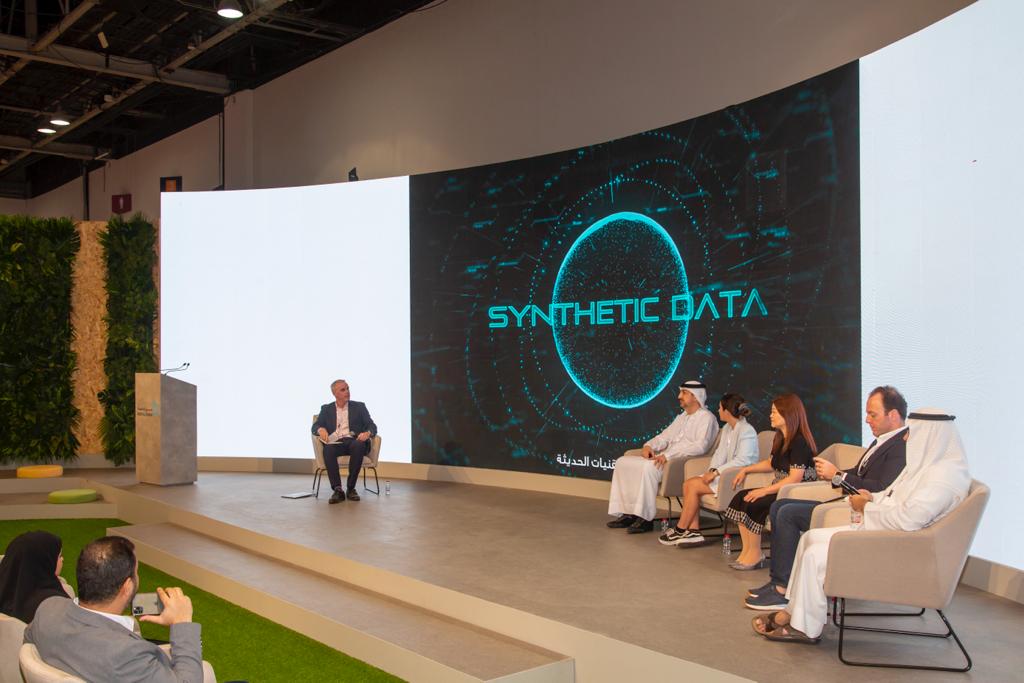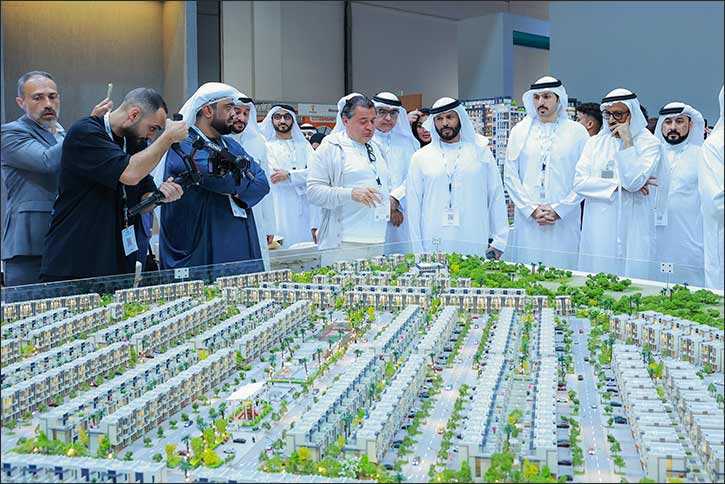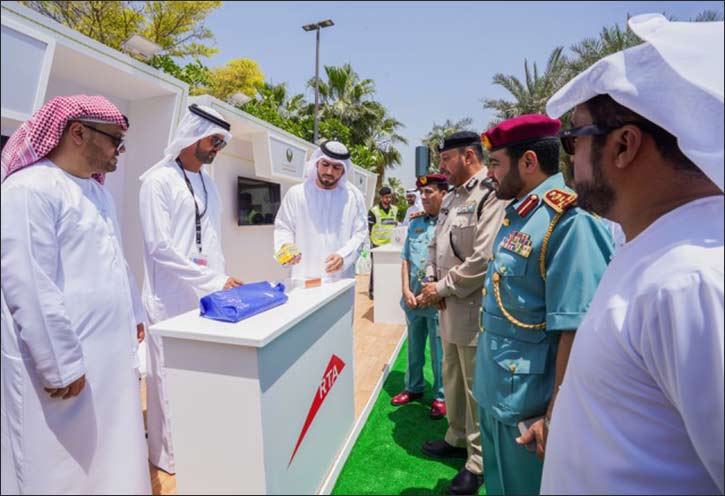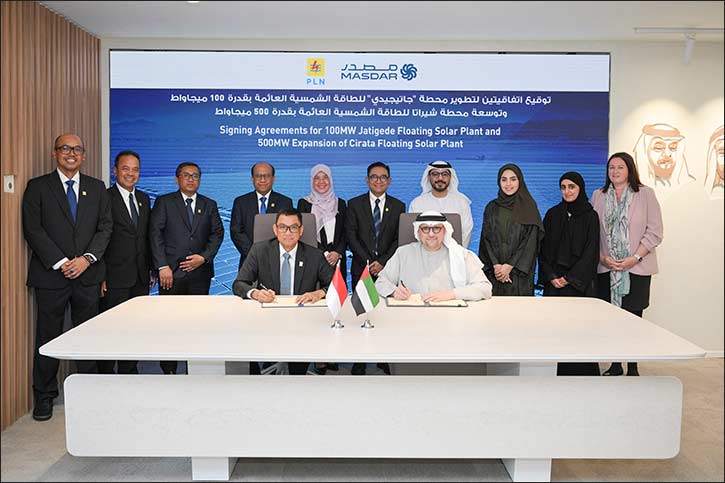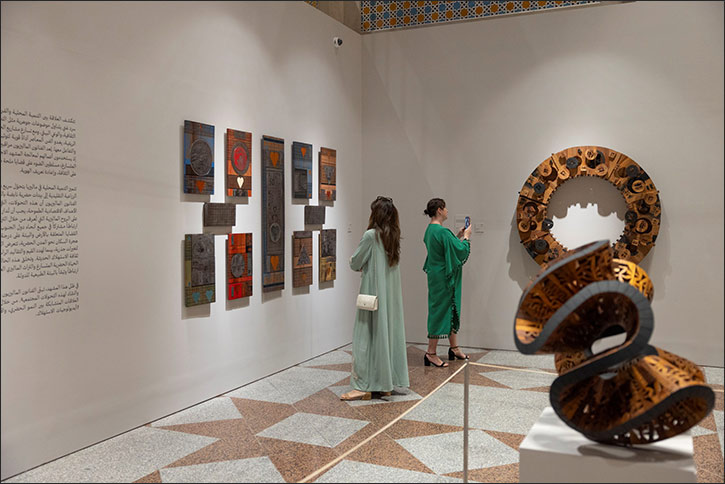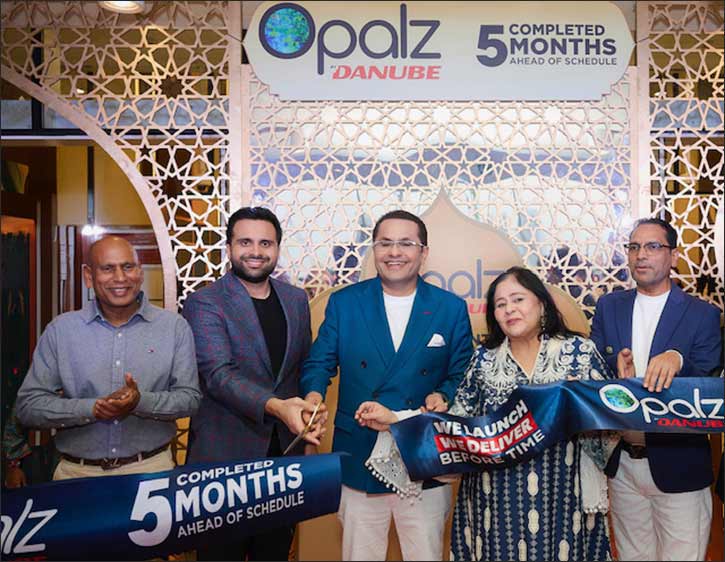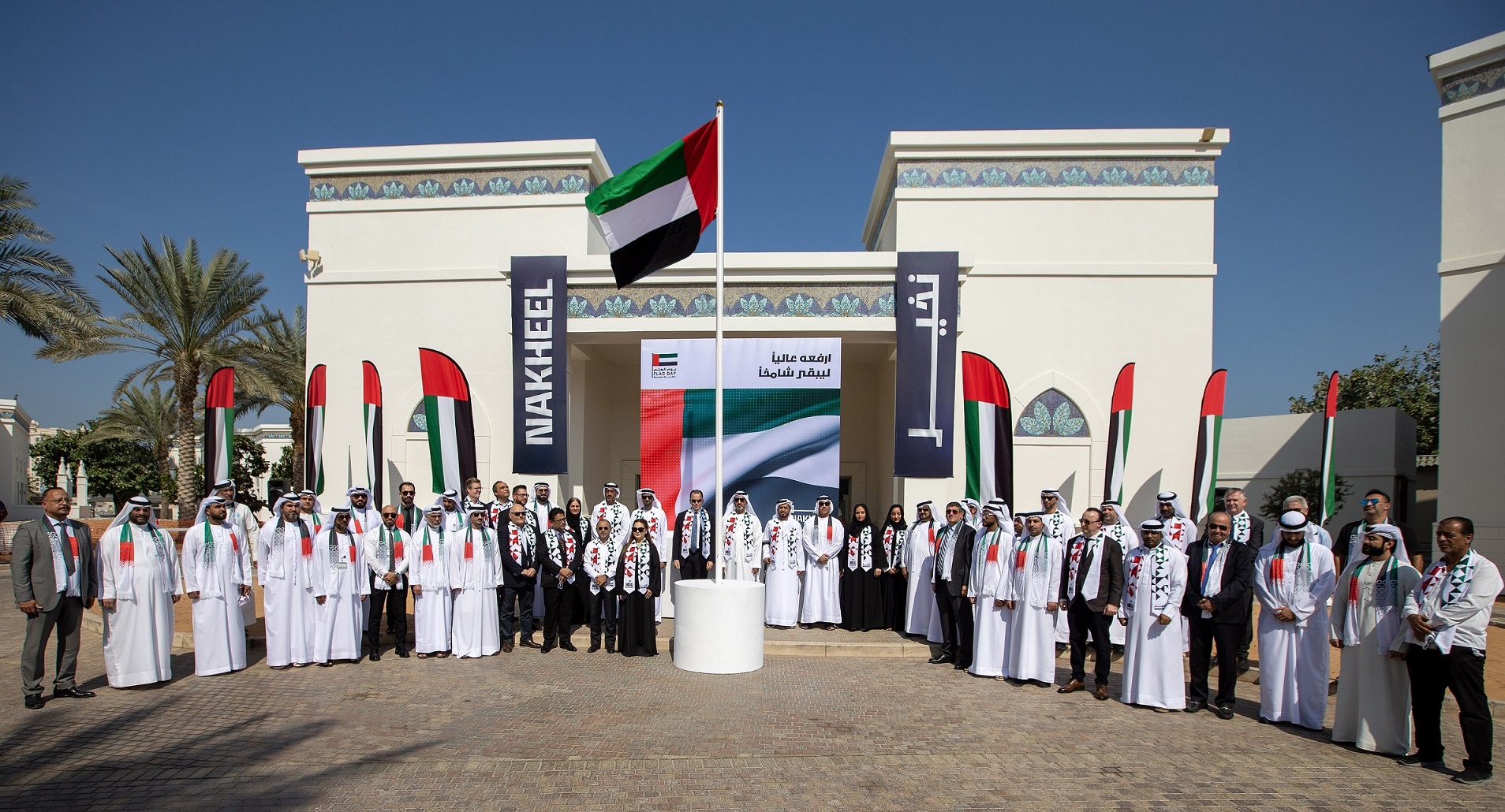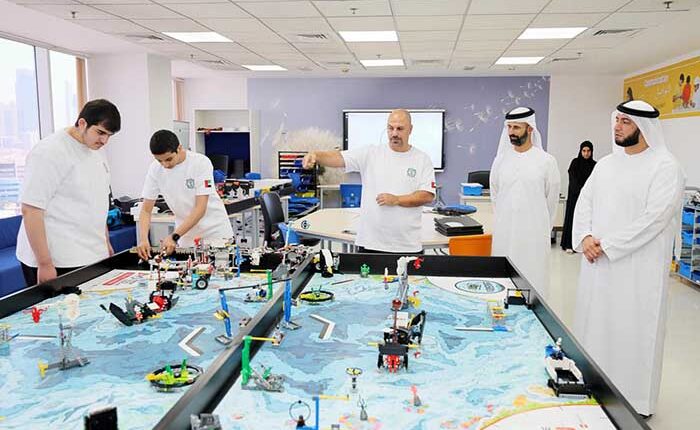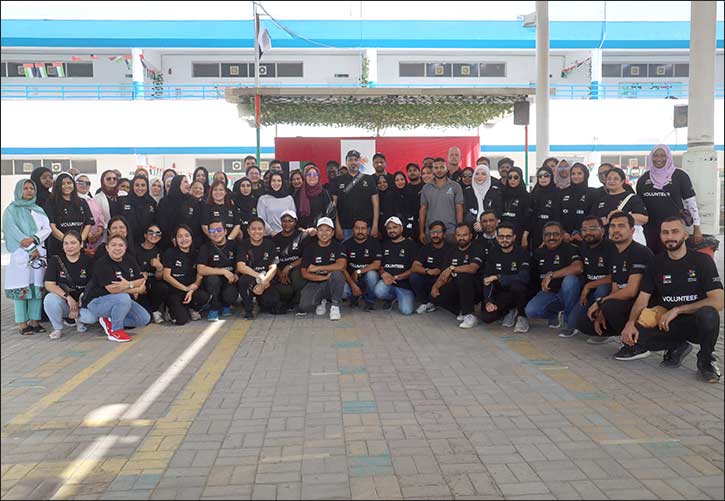- The guide forms part of Digital Dubai’s efforts to spearhead comprehensive digital transformation.
- H.E. Hamad Al Mansoori: The framework provides data-related solutions from ensuring privacy to maximizing benefit from available big data.
- H.E. Younus Al Nasser: This accomplishment is part of Digital Dubai’s mission to build an integrated, innovation-friendly data environment, powered by advanced AI technologies, and lead the transition towards digitizing life in the emirate.
Digital Dubai has launched a framework for the use of Synthetic Data, designed to help organizations adopt Artificial Intelligence (AI) technology so they can develop solutions and services that use that data in analysis and machine learning processes, instead of real data that may involve a violation of privacy.
Before delving into the subject in deeper detail, important questions must be answered, most notably, what is synthetic data? What role does it play? And why has it captured Digital Dubai’s interest at this particular time, as the Emirate moves forward towards the era of the Fourth Industrial Revolution (4IR)? The press release below aims to answer all of these questions.
A Brief Introduction to Synthetic Data
In the era of big data, digital data has become indispensable for sound decision making and for developing government and social services, as well as private sector solutions. The development of artificial intelligence (AI) technologies and the resulting deep and machine learning applications, coupled with the rapid developments in 5G communications, means the time is ripe to embrace the Fourth Industrial Revolution and its tremendous potential in the fields of government services, health, and transportation, among others.
Nevertheless, difficulties have been faced, and still are, by experts in data analysis and AI working to achieve these goals. Data left untreated usually points to its owners, individuals or institutions, even when identifiers have been removed and basic privacy preserving techniques have been applied. Reverse engineering can restore those identifiers and reveal the identities of their owners. Using third-party data, certainly, may amount to a breach of privacy.
This situation has always brought about many questions, but the questions turned into a dilemma when the European Union’s General Data Protection Regulation (GDPR) was issued and adopted in April 2016, becoming binding for all institutions in the EU. Matters were further complicated when other countries, such as China, the United States, and others, followed suit with similar regulations. And the situation is no different here in the UAE, where data belonging to persons or institutions may not be used without the consent of its owners.
Indeed, entities and officials leading the charge on digital transformation were at a crossroads all around the world, including in the UAE. What could be done?
This is where the idea for synthetic data came about as an alternative that delivers on the ethical aspect of artificial intelligence – focusing primarily on the protection of privacy – as well as the scientific and practical uses of data in order to drive digital transformation.
So, what is Synthetic Data?
Synthetic data is artificially generated by an AI algorithm that has been trained on the real data set. Retaining the structure and statistical integrity of original data, synthetic data has the same predictive power as the original data but replaces it totally rather than disguising or modifying it
It cannot be reverse engineered to reveal the identities of any natural or legal persons.
With Digital Dubai and its affiliate, the Dubai Data Establishment, leading the charge, the Emirate of Dubai has spearheaded one of the world’s most prominent attempts to capitalize on Synthetic Data, paving the way for the Emirate to seamlessly enter into the age of digital data and artificial intelligence. How did Dubai do it?
Research and Development
The Dubai Data Establishment collaborated with international experts on a scientific research study to find practical solutions that maximize the benefits from data in terms of machine learning and artificial intelligence, while ensuring adherence to the ethics of artificial intelligence and laws to preserve the confidentiality and privacy of individuals.
The study culminated in the publication of a white paper and a framework offering a practical guide that explores Synthetic Data and how it can be used to support data hungry technologies like artificial intelligence. Titled ‘Unleashing the Power of Data through Private Synthetic Data’, the paper contains important information and guidelines for data leaders in Dubai, allowing them to understand the prospects of private synthetic data, as well as to learn how to use it and create value from the data and drive digital transformation in Dubai.
The white paper and framework also targets data scientists, providing them with a detailed technical overview of the current methods used to ensure data privacy, and highlighting research results and evidence demonstrating the impact of the private-synthetic approach, which strives to balance between preserving privacy, on the one hand, and achieving the goals intended from data analysis and machine learning, on the other.
Safe Entry into the Age of Data
Commenting on the launch of the white paper, His Excellency Hamad Obaid Al Mansoori, Director General of Digital Dubai, asserted: “Our interest in digital data stems from our awareness of its importance at this stage, where we are witnessing AI-powered technologies transforming every aspect of our lives. Our efforts to work with digital data are an integral part of our journey to lay the foundations of a comprehensive and integrated digital life, supported by smart solutions that are rooted in digital data analysis. They form part of our commitment to implement our wise leadership’s directives to advance Dubai’s position as a city that inspires the world in its quest to create a prosperous future for its citizens and residents.”
“Our recent efforts in that regard aim to overcome one of the main challenges to data usage, which is preserving the privacy of individuals and entities, while maximizing benefit from available data,” H.E. Al Mansoori added. “These efforts have been met with notable success, and today, we have developed an advanced practical guide that decision makers and experts can refer to. I thank the Dubai Data Establishment and all research and support teams for this accomplishment, and I urge our partners across government entities to explore the findings of this study, benefit from the instructions it provides, and work to enrich it by implementing the guidelines in the data analysis field moving forward.”
For his part, H.E. Younus Al Nasser, Assistant Director General of Digital Dubai, and CEO of Dubai Data Establishment, said: “This research is in line with the Dubai Data Establishment’s mission to build an integrated and thriving system that supports innovation in the field of data to create value and spearhead the transition towards a comprehensive, fully integrated smart digital life. With this responsibility in mind, we understand the importance of data mined from various sectors across the Emirate of Dubai, but at the same time, we are highly aware of the need to preserve the security and privacy of individuals and organizations – both government and private entities. This pioneering project we are launching is one of many we are working on that are designed to develop policies, standards, and guidelines to facilitate the dissemination and exchange of data and ensure its proper use.”
“This achievement is another major milestone, following the successful launch of the Ethical AI Toolkit and Data Sharing Toolkit, which achieved promising results that allowed us to demonstrate that it is possible to create special composite copies of sensitive data systems that simulate real data, but are more secure and in line with privacy laws,” H.E. Al Nasser added. “And by processing this Synthetic Data, we can maintain confidentiality without compromising the valuable information contained in raw data. This, in turn, allows for advanced analysis, the creation of ever more advanced data-driven products and solutions.”
H.E. Al Nasser applauded the partnership with Faculty – a world leader in AI – which supported Digital Dubai to complete the white paper. “This partnership is a great example of what the relationship between the public and private sectors should look like in the era of digital data and the Fourth Industrial Revolution. The tremendous transformations the world is witnessing call for concerted efforts to achieve results that benefit everyone.”
Sandbox Experimental Environment
The Digital Dubai research team have built a Sandbox Experimental Environment to test the effectiveness of Synthetic Data. They sought to determine the validity of synthetic data and its potential uses in artificial intelligence applications. The team used three data systems, including thousands of data files documenting traffic accidents in Dubai on the Dubai Pulse platform. Through analysis and comparison processes based on advanced scientific methods, the research team was able to develop an approach that secures the confidentiality and privacy of data more efficiently than with traditional methods, which consist of removing identifiers from the data systems in question.
This experience opens wider prospects for revealing latent and unprecedented aspects of employing private data systems from various government entities in Dubai. The model can later be expanded to include private sector institutions, so that public-private partnerships can form to enhance digital life and AI-powered technologies in the Emirate.
One Team, One Goal
Chaired by H.E. Hamad Al Mansoori, Director General of Digital Dubai, the Dubai Digital Transformation Steering Committee was formed in October 2021 with seven sub-committees under its umbrella, including the Data and Artificial Intelligence Committee. The Steering Committee is tasked with ensuring coordination between government entities tasked with implementing Dubai’s digital transformation plan, proposing legislations to regulate related activity, outlining KPIs to review progress made by government entities on that front, and proposing cybersecurity governance procedures.
The Data and Artificial Intelligence Committee has set objectives to enhance the use and exchange of data, develop citywide centralized and decentralized platforms to optimize data exchange, and promote AI applications and uses. The Committee presides over four teams: data infrastructure team, data administration and exchange team, artificial intelligence team, and committee administration and research team.
To stimulate the use of Synthetic Data the Digital Dubai will now embark on a series of learning seminars with Dubai Government employees and data champions. A series of more specific workshops will also be held, in which we will guide government employees through the Synthetic Data Implementation Framework so that they can assess how it can boost the impact of data in city experiences and product development. In the meantime, we urge Dubai’s data community to engage with the Implementation Framework and promote the research paper at all government entities. Digital Dubai is especially interested to hear from private sector entities who have already started to experiment with synthetic data in their operations.
-End-
